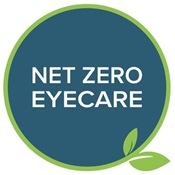Ophthalmology and OMPs
Royal College responds to hidden waiting list research
Royal College responds to hidden waiting list research
The Royal College of Ophthalmologists (RCOphth) has responded to the Reform report on hidden NHS waiting lists.
RCOphth said it had argued for a much “stronger focus on follow-up waiting lists” for the previous two years. It also warned the Public Accounts Committee about a “huge hidden backlog not accounted for in NHS England statistics”.
The College welcomed the national media attention on ophthalmology waiting times, especially as delays in care can result in avoidable sight loss. Opchat News reported this story last week which was highlighted by FODO.
The RCOphth said it had shared its views on the impact of independent sector provision on cataract surgery and the need now to expand capacity for follow-up care for other sight-threatening conditions.
In addition, RCOphth was keen to see:
- The role of ophthalmic technicians expand in diagnostic hubs or more diagnostic services in optometry practices
- NHS commission services that allow more patients to be discharged by hospitals to optometrists and to ensure “the governance structure, integrated care pathway and oversight” is in place to “enable safe, high-quality care in the community”
- Robust referral refinement criteria and discharge guidelines to enable more patients to be seen and treated in primary eye care
- IT connectivity to make this happen.

Harjit Sandhu, FODO’s managing director, said: “We welcome the Royal College’s call for action.Patients are at significant risk of preventable sight loss due to delays in hospital care, and it is vital NHS commissioners in England act now to commission enhanced primary eye care services to help reduce this risk.”
He added: “The Royal College and FODO share many of the same goals, including the need for robust IT connectivity to enable much-needed transformative change for the benefit of patients we all serve. We will continue to work with all sector partners to ensure policymakers and commissioners understand and act on the risk people face because of gaps in NHS commissioning.”






















